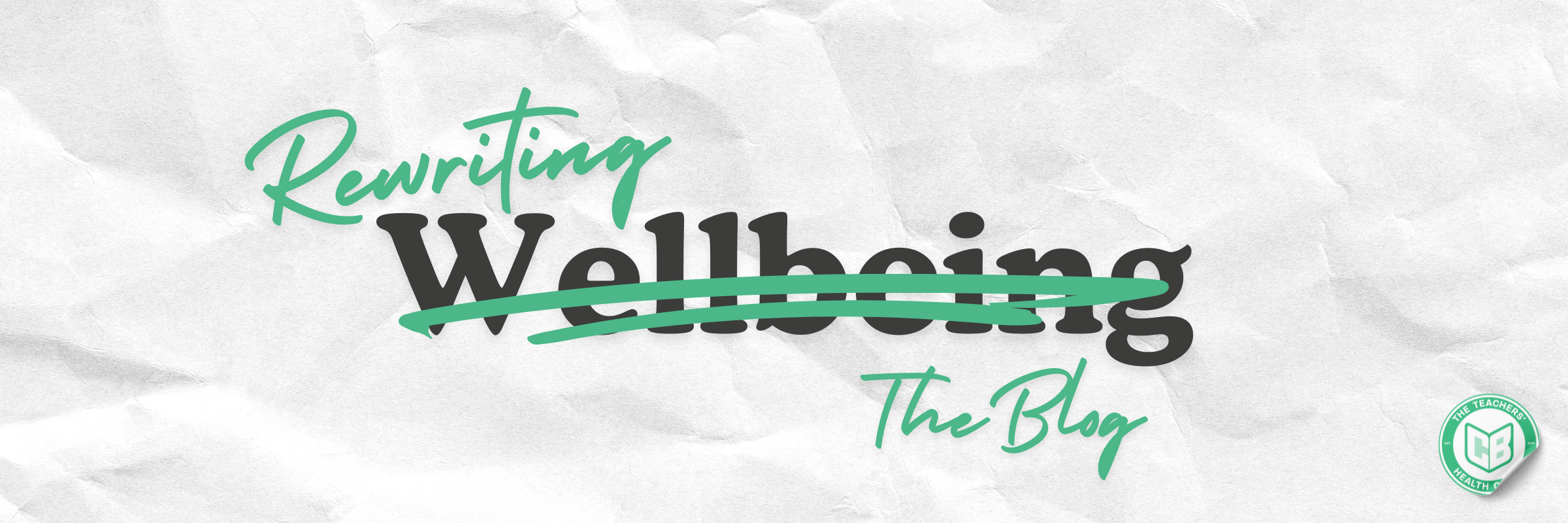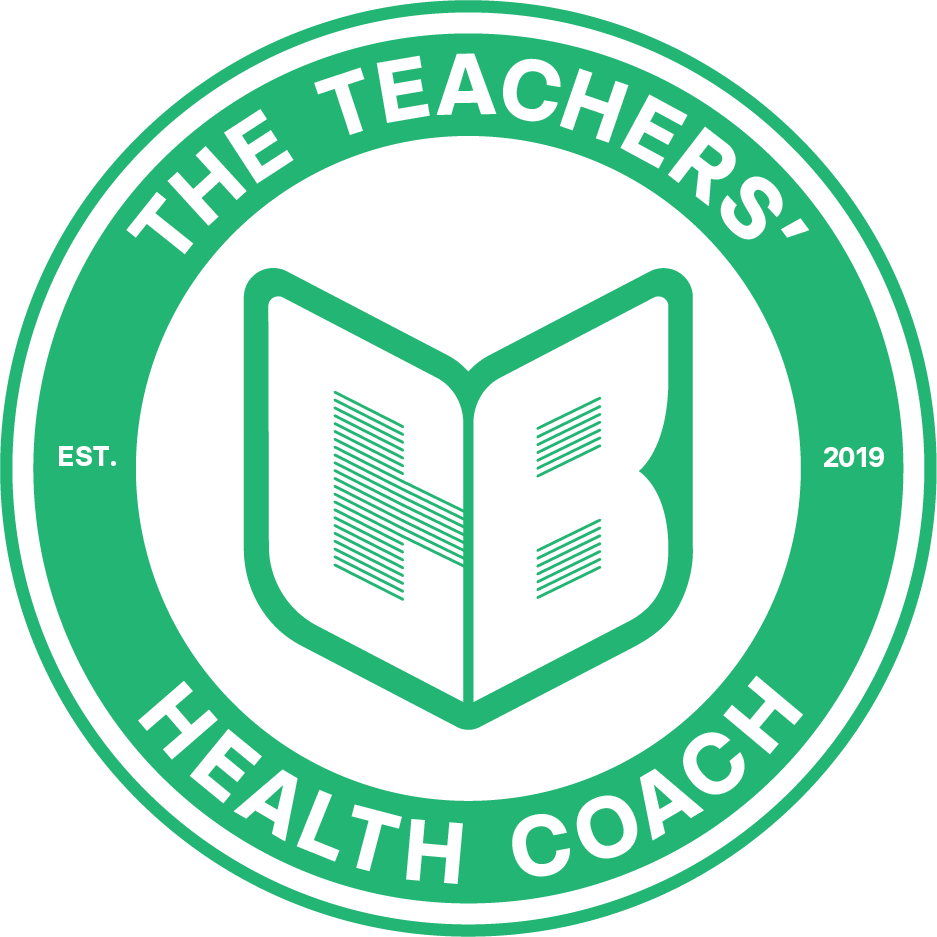


The 5 Real Reasons You're Exhausted As A Teacher
The 5 Real Reasons You're Exhausted As A Teacher!
Hint: It’s Not Just The Workload…
Teacher Tired (adj): A state of extreme exhaustion, ironically not often caused by the teaching.
Over the last few weeks I’ve been talking to our teachers about tiredness, low energy and overwhelm - a lot! For so many, a good night’s sleep just isn’t quite doing it.
So, why is that?
Let’s dive in…
1. Chronic Cortisol
Teaching is a full on job, we’re always “on” and often required to be hyper vigilant.
Our bodies respond to this prolonged stress by releasing cortisol, priming our bodies for survival amidst the threat we’re facing. In the short-term, this isn’t a problem, cortisol does its job, we deal with the stressor and our bodies regulate themselves.
But in teaching, the stressors often don’t go away…
Chronic cortisol build up can lead to a constant state of alertness, draining out energy reserves and stopping us from being able to switch off and relax.
If we don’t manage this response, we can experience insomnia, a loss of libido, weight gain or loss, fluctuations in appetite, hair loss and many other negative physical and psychological effects.
2. Thought Fatigue
You know that thick fog of overwhelm? You can’t think clearly about even the most simple decisions.
"Do you want pizza or pasta for dinner?” It feels like you’re being asked to make an impossible call!
Decision-making, problem-solving and constant multitasking are the bread and butter of what we do as teachers. You’ve heard the statistic about us making more minute-by-minute decisions than a brain surgeon, right?
But the truth is, our brains can’t actually multitask - they can only task switch!
The term multitasking was coined in the 1960s and referred to computers performing more than one task a time - something they’re still not great at, by the way! Our brains aren’t brilliant at this either. Instead they actually “task switch” very quickly between things we’re placing our focus on.
This continuous cognitive load results in thought fatigue. Our mental processes end up slowing down, making even smaller jobs and decisions feel extremely overwhelming.
3. Perpetual Patience
Managing a classroom, a department or even a school requires seemingly endless amounts of patience.
Unfortunately, that’s the one resource we can’t create!
Although it seems simple, patience is actually a really complex trait and it uses multiple parts of the brain: the prefrontal cortex, the amygdala, the striatum and others. Plus, it relies on important chemicals in the brain like dopamine and serotonin…
I’m getting tired just thinking about it!
Whether it’s challenging behaviour, supporting struggling children or navigating the never-ending expectations of parents, the need to remain calm and composed is knackering!
This perpetual need for patience chips away at our mental energy and emotional resilience.
4. Trickle-down Trauma
We often absorb the emotions in our environment; something we know all too well as those working in education.
Seeing the children’s challenges, struggles and, quite frankly, sometimes upsetting circumstances can take a significant toll on our own mental health as we ruminate on the situation.
Secondary Trauma Stress is actually closely linked to PTSD and can leave us with intrusive thoughts, emotional numbness and heightened anxiety.
This trickle-down trauma adds another layer to our emotional exhaustion…
5. Emotional Exhaustion
Teaching is a profession built on relationships, but this also means the emotional investment we put into our children’s success and wellbeing is enormous!
Over time, this deep emotional engagement can leave us feeling depleted and detached from our own emotions, and the emotions of others.
Sadly, so many of the conditions we face everyday as teachers (the lack of control, last minute changes, insufficient rest and emotional recovery) exaggerate these symptoms and make recovery even more challenging!
So what can we do about it?
Is there anything we do about it? The short answer: yes.
The long answer is a bit more complicated…
The main contributing factor that holds back our recovery as teachers is the serious lack of time and space from school we have to work with. By the time we get home, it’s sometimes as little as twelve hours before we’re back in the building again!
Also, we’re already overwhelmed. Adding more to our plates probably isn’t going to be the most useful strategy. Finally, we crave control in a profession where so much is outside of our own.
With these obstacles in mind, let’s look at some simple strategies we can use to aid our recovery:
Mini Mental Holidays
Research shows the difference in brain activity between being on holiday and visually recalling memories of being on holiday is negligible!
Both have a profoundly positive impact on our central nervous system, helping to reduce cortisol and move us into our parasympathetic (“rest & digest”) state - good news for us!
We can use this as a really simple strategy that you can do anywhere, anytime.
You could photos, music, soundscapes, visualisations or even certain scents to take your brain and body back to a time where you felt calm. The research is strong on this!
You could take this a step further and apply the same principle to a current experience. Taking yourself for a five minute walk, listening to music that calms you down now or using something like mindful breathing or meditation are all useful strategies.
Bitesize Behaviours
Something I am hugely passionate about as a coach. How often do we look at what we can do to manage our mental health and then set ourselves yet another lofty goal?
“I’m going to meditate every day… For 15 minutes.. First thing in the morning… After getting up at 5am!
Cut yourself some slack! Choose the minimal effective dose version of the behaviour. What is the minimal amount you could do that would have a positive impact? I find chunks of just five minutes is a good place to start…
Walking for five
Calling a friend for five
Mind-dumping for five
The little things aren’t so little when they start stacking up…
Simplified Strategies
A bit of an obvious one, but simplify your life! Reduce the number of decisions you have to make on a daily basis, from what you wear to what you eat.
Think about making things as easy for yourself as you can, e.g, keep your breakfast and lunch to just a few ingredients, plan fewer activities within lessons and simplify your routines to the minimal amount of steps possible!
If you can apply a minimalist approach to things like your home and classroom environment, this will give your brain’s “scanner” fewer bits of information to sort through and help reduce mental and sensory fatigue.
Alternative Expectations
One thing we’re great at as teachers is holding ourselves an extremely, sometimes unrealistic, standard. This isn’t great when we’re facing those five struggles we outlined earlier!
When we hold ourselves to unattainable standards and our reality doesn’t quite reach it, there’s a gap. This is the disappointment gap. The wider the gap, the greater our sense of disappointment - and the emotional impact!
I like to use ABC planning with my teachers. We have at least 3 tiers of expectations for ourselves: A for when we’re on our A game, B as our plan B and C for days when we feel we need extra compassion.
Having different expectations for our different energy levels allows us to build a wave of consistency which ebbs and flows, rather than aiming to be a 10/10 all the time!
Wellbeing Bubbles
Hailing from the concept of bubbles during the Covid pandemic, wellbeing bubbles follow a similar idea: a small group of people who provide a sense of safety.
If within our teams (be that our staff teams as adults, or classes for the children) we can create a secure, trustworthy support network or ‘bubble’, we can hold space for each other to talk, share and discuss the situations that are leading us to feel so exhausted.
The key with this concept is that we give as much as we take. A bubble can’t just become one person’s space to seek council; it’s got to benefit everyone equally over a period of time.
This gives us a safe space to feel seen, heard and validated - one of our inherent human needs.
Some closing thoughts…
As we come to the end and you take these ideas forward, I think it’s important to set out a few important reminders:
Start small - don’t try all these things at once
Go easy on yourself, show yourself compassion
What gets planned for has a habit of happening - put these things in your diary!
And finally,
“When we change the way we look at things, the things we look at change.” - Wayne Dyer
Be open to challenging your perspective on things because if nothing changes, nothing changes.



